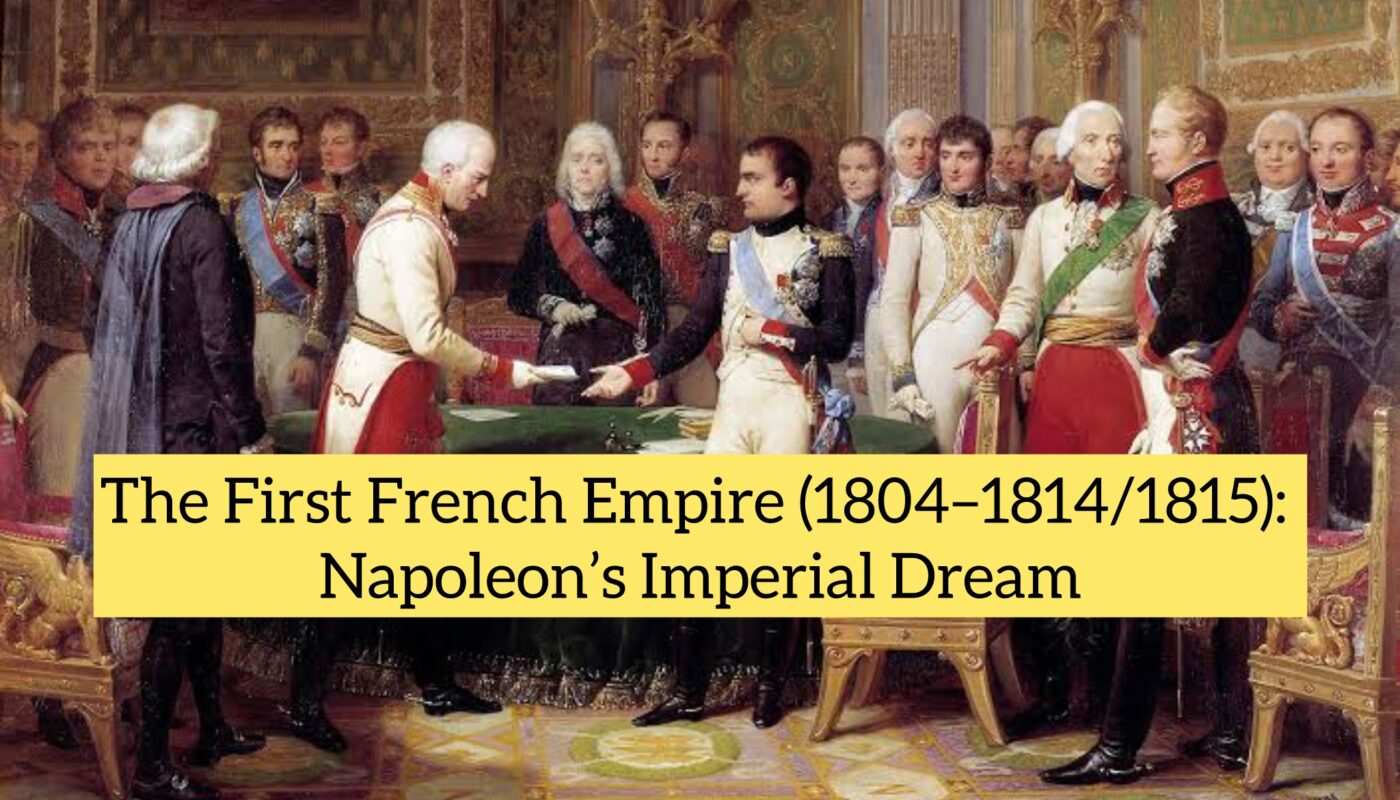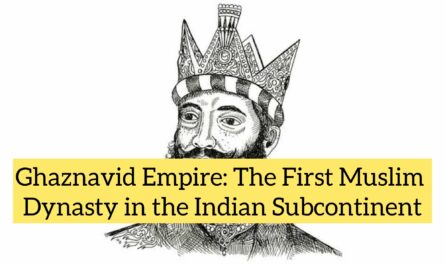Introduction
The First French Empire was the empire of Napoleon Bonaparte, officially established in 1804 after the dissolution of the French First Republic. Marking a dramatic transformation from revolutionary ideals to autocratic rule, the empire sought to unite much of Europe under French control, exporting the principles of the French Revolution through military conquest and reform.
Although short-lived, the First French Empire left an indelible mark on European politics, law, and society. Its legacy continues to influence legal systems and concepts of statehood even today.
Historical Background
From Republic to Empire
Napoleon Bonaparte, a successful general during the French Revolutionary Wars, rose to power in 1799 through a coup d’état known as the 18 Brumaire, establishing the Consulate. By 1802, he was declared First Consul for Life, consolidating power.
On December 2, 1804, Napoleon crowned himself Emperor of the French in a lavish ceremony at Notre-Dame Cathedral in Paris, signaling the official birth of the First French Empire.
Structure and Governance
Centralized Power
-
Napoleon wielded absolute executive authority.
-
Ministries, judiciary, police, and military were tightly controlled from Paris.
-
Political opposition was censored or suppressed.
Administrative Reforms
-
Napoleonic Code: A comprehensive civil legal code introduced in 1804, emphasizing equality before the law, secular authority, property rights, and civil liberties.
-
Efficient Bureaucracy: Napoleon restructured France’s administration into centralized departments.
-
Meritocracy: Promotions in government and military were based on ability rather than birth, aligning with revolutionary ideals.
Religion and the Concordat
-
The Concordat of 1801 with Pope Pius VII restored the Catholic Church in France under state supervision, balancing secular and religious interests.
Military Expansion and the Napoleonic Wars
Napoleon aimed to expand French influence across Europe, leading to a series of wars known as the Napoleonic Wars (1803–1815).
Major Military Campaigns and Victories:
-
Battle of Austerlitz (1805) – Napoleon decisively defeated Russian and Austrian forces, marking the peak of his military genius.
-
Treaty of Tilsit (1807) – After defeating Prussia and Russia, Napoleon redrew the map of Europe.
-
Peninsular War (1808–1814) – A prolonged conflict in Spain and Portugal, marked by guerrilla warfare and British resistance under the Duke of Wellington.
-
Russian Campaign (1812) – A disastrous invasion that saw Napoleon’s Grande Armée decimated by winter, logistics failures, and Russian tactics.
Expansion of French Control:
-
Napoleon created a network of client states and satellite kingdoms, often ruled by his relatives:
-
Kingdom of Italy
-
Confederation of the Rhine
-
Duchy of Warsaw
-
Kingdom of Naples and more
-
The Continental System
In an attempt to weaken Britain economically, Napoleon imposed the Continental System, a large-scale embargo prohibiting European nations under French control from trading with the British.
However, it backfired:
-
Smuggling and resistance undermined the blockade.
-
It damaged the economies of allied and occupied nations.
-
It contributed to deteriorating relations with Russia and others.
Decline and Fall
Turning Points:
-
Peninsular War drained French resources and morale.
-
Russian Campaign (1812) led to catastrophic losses—only ~100,000 of 600,000 troops returned.
-
Battle of Leipzig (1813) – A coalition of European powers defeated Napoleon in the largest battle in European history up to that point.
First Abdication (1814)
Napoleon was forced to abdicate and was exiled to Elba, a small island off the coast of Italy. The Bourbon monarchy was restored under Louis XVIII.
The Hundred Days and Waterloo (1815)
Napoleon escaped Elba in March 1815 and returned to power during the brief Hundred Days. But he was decisively defeated at the Battle of Waterloo on June 18, 1815, by British and Prussian forces.
Final Abdication and Exile
Napoleon abdicated again and was exiled to Saint Helena, a remote island in the South Atlantic, where he died in 1821.
Legacy of the First French Empire
Legal and Institutional Impact
-
The Napoleonic Code remains the foundation of civil law in many countries, including France, Belgium, Italy, and parts of Latin America.
-
Napoleon modernized administration, education, and finance systems, many of which continued even after his fall.
Nationalism and Modern Statecraft
-
Napoleon’s empire spread ideas of nationhood, legal equality, and meritocracy, influencing nationalist movements across Europe.
-
His wars weakened feudal and monarchic structures in many regions, paving the way for modern nation-states.
Mixed Reputation
-
Admired for his administrative genius and legal reforms.
-
Criticized for autocratic rule, censorship, wars of aggression, and massive human cost (millions dead).
Conclusion
The First French Empire was a monumental chapter in European history—a time of sweeping conquest, radical reform, and intense conflict. Napoleon Bonaparte transformed France from a republic into an imperial powerhouse, attempting to reshape Europe in his image. While his military ambitions ultimately failed, his legal and institutional reforms endured, shaping the foundations of modern Europe. The First French Empire remains a compelling example of the fusion of military power, political ambition, and revolutionary ideals—and a cautionary tale of how they can both build and destroy empires.



